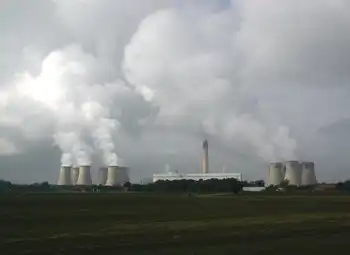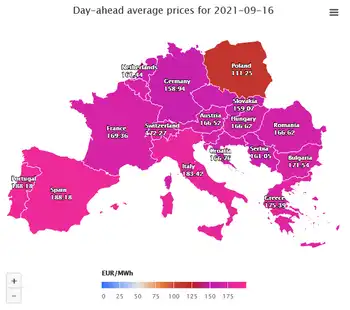U.S. renewables standard offers mixed bag
WASHINGTON, D.C. - A U.S. renewable energy mandate would lower the use and cost of natural gas, but wouldn't reverse the rate of emissions, says analyst Wood Mackenzie.
"Renewable energy alone will not be enough to result in the large (greenhouse gas) reduction targets being proposed," said Joe Sannicandro, vice president for North American power for Edinburgh, Scotland-based Wood Mackenzie.
For a new report on a proposed 15 percent Federal Renewable Energy Portfolio Standard, the energy analyst looked at an expected 420 gigawatts of capacity needed by 2027 as U.S. energy demand increases and facilities age.
The study was prompted by the 24 states that have already created targets for adding renewables to the energy mix. The federal government, sparked especially by an increased concern over global climate change, may possibly create an RPS.
Wood Mackenzie defined renewables as "wind, solar, landfill gas, biomass, and small hydro power."
"Currently, the U.S. power sector produces 39 percent of the country's total (carbon dioxide) emissions," Sannicandro said in a Wood Mackenzie release. "Our study shows that a Federal RPS would only be one small piece in a large and complicated puzzle to halt the growth of or reduce the absolute level of (carbon dioxide) emissions."
The study showed an RPS would not stall or reduce such emissions, only slow the growth rate.
It recommended accompanying such a move with nuclear power, integrated gasification combined cycle and carbon sequestration projects, as well as reducing consumption of electricity.
The RPS would, however, be a boon for the renewables industry, including a 500 percent increase in capacity and $134 billion in construction.
"The lower fuel costs and fossil fuel consumption will lead to lower electricity costs," Sannicandro said. "Over the next 20 years, the Federal RPS case leads to a savings of $240 billion (2006 dollars) in wholesale power costs, outweighing the higher capital investment to build the additional capacity."
He noted, however, that lower natural gas prices will increase its ability to compete with other energy sources.
Related News

How the dirtiest power station in western Europe switched to renewable energy
LONDON - A power station that used to be the biggest polluter in western Europe has made a near-complete switch to renewable energy.
The Drax Power Station in Yorkshire, England, used to spew out millions of tons of carbon dioxide a year by burning coal. But over the past eight years, it has overhauled its operations by converting four of its six coal-fired units to biomass. The plant's owners say it now generates 15% of the country's renewable power.
The change means that just 6% of the utility's power now comes from coal. The ultimate goal is to stop using coal altogether.
"We've…




